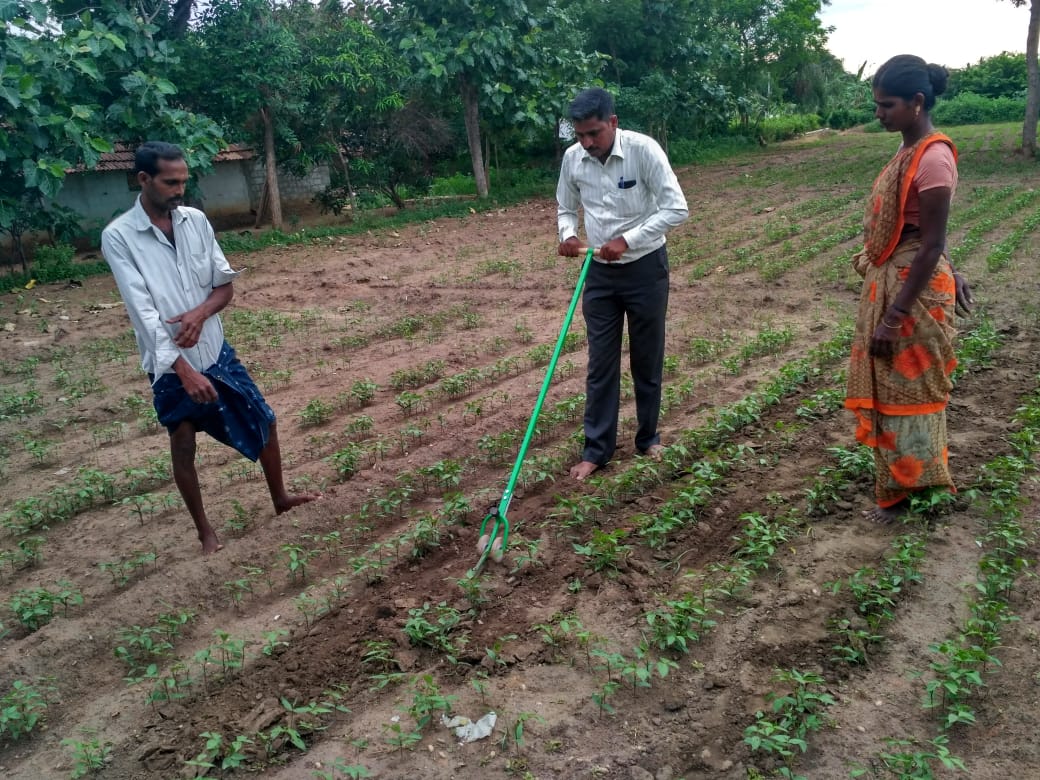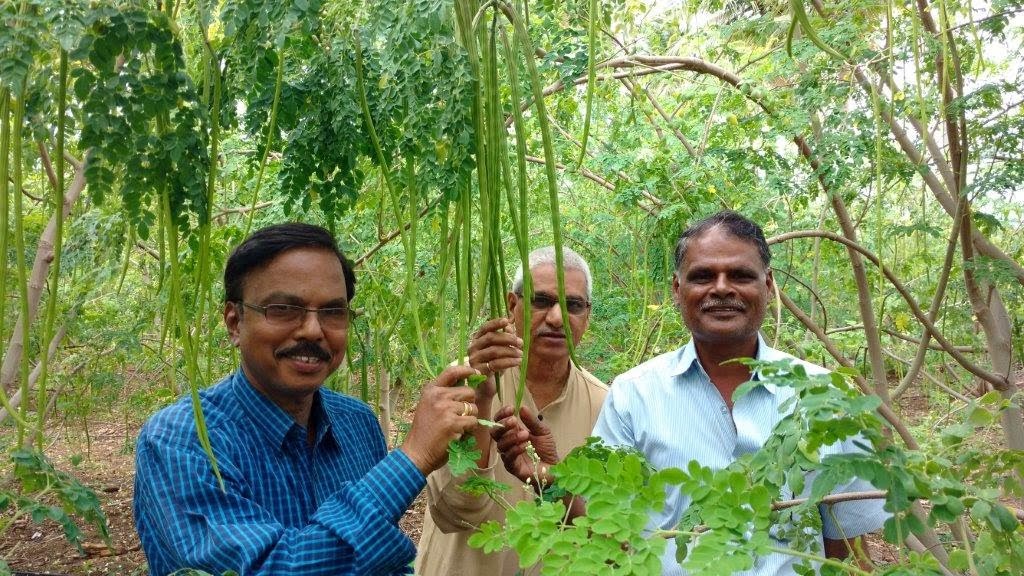
Farmers turn up with smart devices at Science Congress
The first-ever Farmers Science Congress held as part of the 107th India Science Congress at the University of Agricultural Sciences, Bengaluru, saw many innovative inventions by farmers.

The first-ever Farmers Science Congress, held as part of the 107th India Science Congress (January 3-7) at the University of Agricultural Sciences, Bengaluru, saw many innovative inventions by farmers.
About 20 farmers from various parts of the country exhibited their inventions during the one-day meet on January 6.
From sowing machines to value-added millet products, Congress witnessed a plethora of new techniques and tools.
V. Samikkannu, a Dharmapuri-based farmer, did paddy cultivation for 35 years.
Due to climate change, poor rainfall, and pest attacks, Samikkannu decided to give up farming.

But then, a Krishi Vigyan Kendra (KVK) in Pappireddipatti in the district, came forward to support the farmers. It asked the farmers to cultivate vegetables under ‘precision farming.’
“From 2004, I have been doing precision farming. Before getting into that, about 30 to 40 farmers, including me, were taken to field visits and given training. Around 15 of us decided to cultivate ‘moringa’ or drumstick. It is profitable,” he said.
Samikkannu grows drumstick on 4.5 acres. Last year, he harvested 17 tonnes of ‘moringa’ from one acre. “I am growing PMK1 variety of ‘moringa.’ It gives lot of leaves. The drumstick leaves can be used as a delicacy and also be converted into value-added products like tea powder, capsules, and oil. We harvest the leaves once in 50 days. One tonne of leaf can get us Rs. 5,000.”
Drumstick can be harvested only for six months between April and September.

“The period also has a lot of auspicious days so that wedding ceremonies take place. That gives us an added advantage and we can get up to Rs. 30,000 for a ton of drumsticks,” he said.
He said farmers were extensively using drip irrigation. Conventional irrigation methods used more water and it consumed more time and labour.
Duraisamy, a farmer based in Karur district, has developed a low-cost weed remover. Duraisamy has been into agriculture for the past 38 years.
“I developed this device based on the ‘principle of the lever’ in 2012. Being a farmer myself, I know the difficulties in removing the weeds from the fields. So, I developed this device,” Duraisamy said. He has supplied more than 1,200 devices to farmers across Tamil Nadu, Andhra, and Karnataka. His publicity is mostly word-of-mouth.
Also read: Farm fund will drive innovation, improve livelihood, says ICAR chief
The device has been recognized by the Tamil Nadu Agricultural University, Coimbatore.
“I spend around Rs. 600 on making it and sell it for Rs. 1,000,” he said.
Nanda Kumar, a farmer based in Erode district has developed an organic pesticide using neem leaves and cow dung to do away with nematodes which destroy plantain crops.
“In our district, pest attack is a major problem and the output of varieties like Rasthali and Kathali are decreasing. The pesticide has been tested in ICAR labs and with the help of KVK in Karur, I am able to market this product,” he said.
Also read: Tea body chief writes to 26k farmers, seeks inputs on improving productivity
Vinoth Kumar, a farmer from Ariyalur district, gave up a fairly good job in the Gulf after nine years and returned to his roots in 2015. From then, he started concentrating on organic farming. In 2018, he started mushroom cultivation.
“Mushroom can be grown on decomposing haystacks. People generally follow boiling and chemical methods. In the boiling method, a lot of firewood is needed and thereby causes air pollution. It also requires two or three labourers. In the chemical method, chemicals like formalin are used. To get rid of these methods, I have developed an organic waste decomposer which quickly decomposes the haystacks and also increases the soil health,” he said.
Farmers from Tamil Nadu were brought by the KVKs. Some of the farmers said they faced a bit of language issues.

